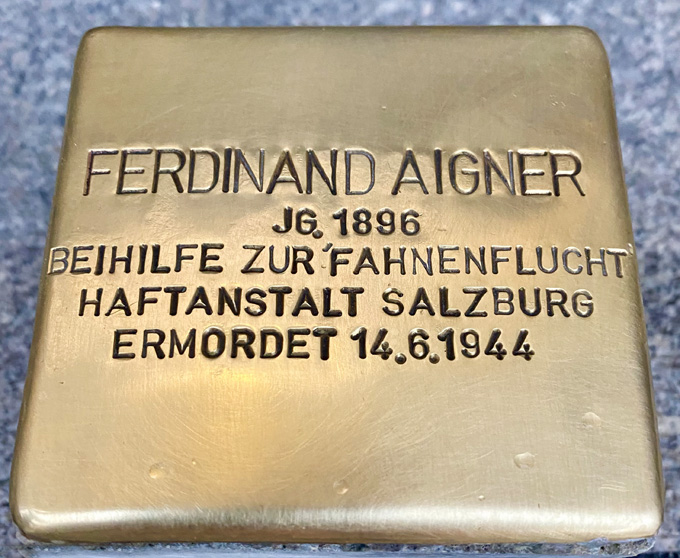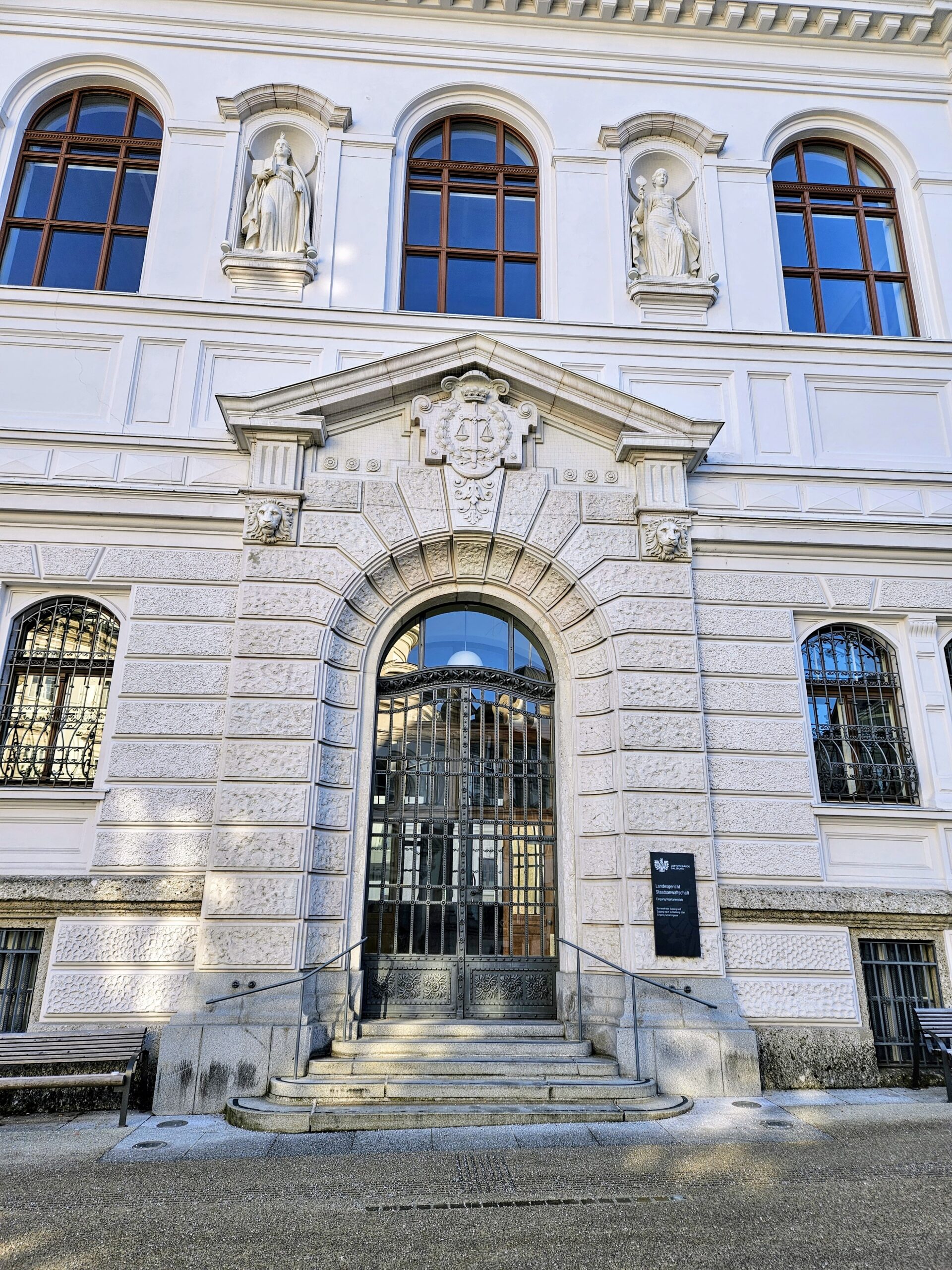Ferdinand AIGNER was born in Laufen (about 18 Km north of Salzburg in Upper Bavaria), on July 8, 1896. He was the son of an unskilled laborer also named Ferdinand Aigner and his wife, Maria Aigner née Streitwieser.
Ferdinand AIGNER was married, had a child and had lived in the Salzburg-Maxglan neighborhood since the 1920s, near where he worked as a nurse in the »State Asylum for the Mentally Ill« (now Christian Doppler Clinic).
It is strange that the nurse Ferdinand AIGNER, who was certainly a victim of the Nazi terror, does not appear in the online database of the Documentation Archive of the Austrian Resistance or in the 1991 published documentation Resistance and Persecution in Salzburg 1934-1945.
It seems that the sources on the political persecution of this nurse were readily available, but simply remained unnoticed. They consist of documents in the files of the Salzburg »special court« that was part of the political criminal justice system devoted to executing the war time decrees of the Nazi regime, part of its war crimes apparatus.
On May 4, 1944 the Salzburg Gestapo arrested the 47-year-old nurse Ferdinand AIGNER at his workplace. He was interrogated in the police jail and then transferred to the prison of the Salzburg Regional Court – supposedly for the purpose of pre-trial detention.
At 1 a.m., on the 14th of June 1944, Ferdinand AIGNER was found dead in his prison cell: either murdered or driven to suicide. According to the police he left no note or farewell words.
The criminal police had to investigate the death, but they concluded that the violent death was a »suicide by hanging out of fear of punishment«, a conclusion designed to accuse the victim of being guilty of a political crime.
Ferdinand AIGNER was accused of an act for which he could have been punished with death: Section 5 paragraph 3 of the »Ordinance on Special Criminal Law in War« refers to »undermining military morale« by aiding and abetting »evasion of military service« and »self-mutilation.«1
The claim here was that the nurse Ferdinand AIGNER had helped a 19-year-old recruit named August Hrabe to evade military service by giving him some injections. That claim was never proven, but it is certain that August Hrabe was able to survive the war years.
Finally, it should be noted that, perhaps because terror victim Ferdinand AIGNER did not belong to any political party, his widow was not given any of the welfare aid for victims and their families provided for in liberated Austria. It isn’t known if any traces of memory remain in the family.
1 The »Ordinance on Special Criminal Law in War«, a dictate by Adolf Hitler in his capacity as Supreme Commander of the Wehrmacht, was repealed in Austria on June 12, 1945 (Law for the Restoration of Austrian Criminal Law).
Sources
- Laufen Registry Office: Birth register
- Salzburg Archdiocese Archives: Registration books
- Salzburg City archives: police registrations
- Salzburg State archives: Salzburg Special Court (4 Js 198/44)
Translation: Stan Nadel
Stumbling Stone
Laid 09.09.2024 at Salzburg, Kajetanerplatz 2



